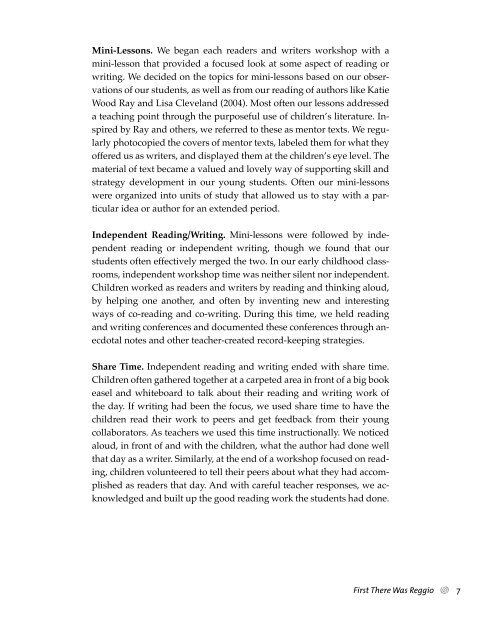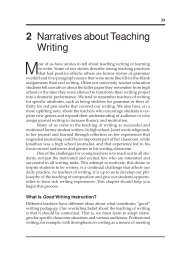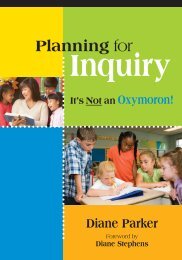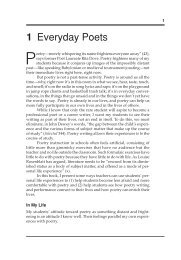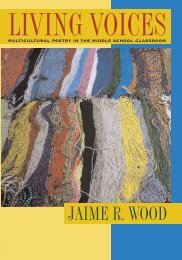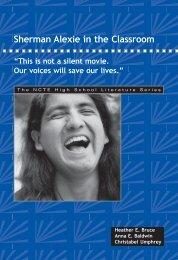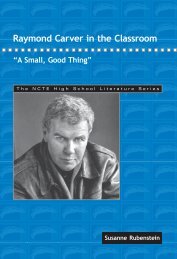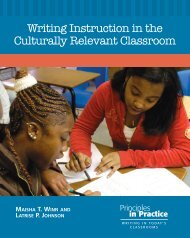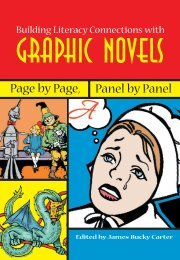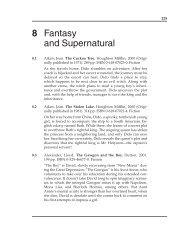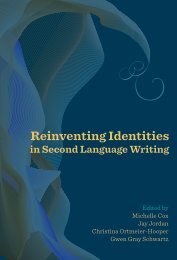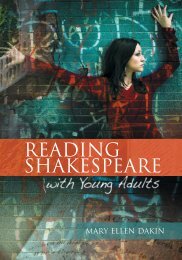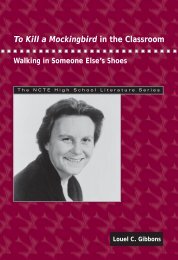View a Sample Chapter - National Council of Teachers of English
View a Sample Chapter - National Council of Teachers of English
View a Sample Chapter - National Council of Teachers of English
- No tags were found...
Create successful ePaper yourself
Turn your PDF publications into a flip-book with our unique Google optimized e-Paper software.
Mini-Lessons. We began each readers and writers workshop with amini-lesson that provided a focused look at some aspect <strong>of</strong> reading orwriting. We decided on the topics for mini-lessons based on our observations<strong>of</strong> our students, as well as from our reading <strong>of</strong> authors like KatieWood Ray and Lisa Cleveland (2004). Most <strong>of</strong>ten our lessons addresseda teaching point through the purposeful use <strong>of</strong> children’s literature. Inspiredby Ray and others, we referred to these as mentor texts. We regularlyphotocopied the covers <strong>of</strong> mentor texts, labeled them for what they<strong>of</strong>fered us as writers, and displayed them at the children’s eye level. Thematerial <strong>of</strong> text became a valued and lovely way <strong>of</strong> supporting skill andstrategy development in our young students. Often our mini-lessonswere organized into units <strong>of</strong> study that allowed us to stay with a particularidea or author for an extended period.Independent Reading/Writing. Mini-lessons were followed by independentreading or independent writing, though we found that ourstudents <strong>of</strong>ten effectively merged the two. In our early childhood classrooms,independent workshop time was neither silent nor independent.Children worked as readers and writers by reading and thinking aloud,by helping one another, and <strong>of</strong>ten by inventing new and interestingways <strong>of</strong> co-reading and co-writing. During this time, we held readingand writing conferences and documented these conferences through anecdotalnotes and other teacher-created record-keeping strategies.Share Time. Independent reading and writing ended with share time.Children <strong>of</strong>ten gathered together at a carpeted area in front <strong>of</strong> a big bookeasel and whiteboard to talk about their reading and writing work <strong>of</strong>the day. If writing had been the focus, we used share time to have thechildren read their work to peers and get feedback from their youngcollaborators. As teachers we used this time instructionally. We noticedaloud, in front <strong>of</strong> and with the children, what the author had done wellthat day as a writer. Similarly, at the end <strong>of</strong> a workshop focused on reading,children volunteered to tell their peers about what they had accomplishedas readers that day. And with careful teacher responses, we acknowledgedand built up the good reading work the students had done.First There Was Reggio D 7


